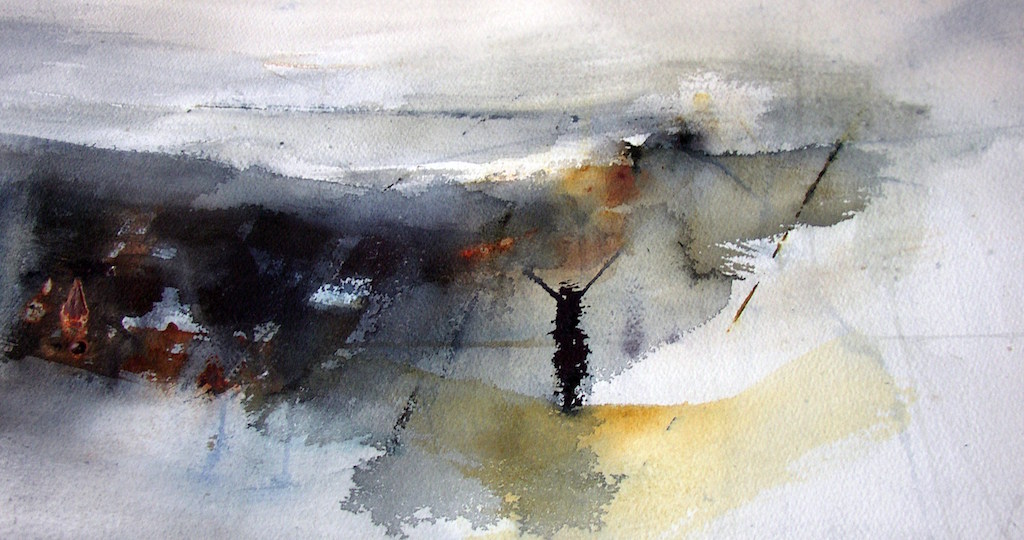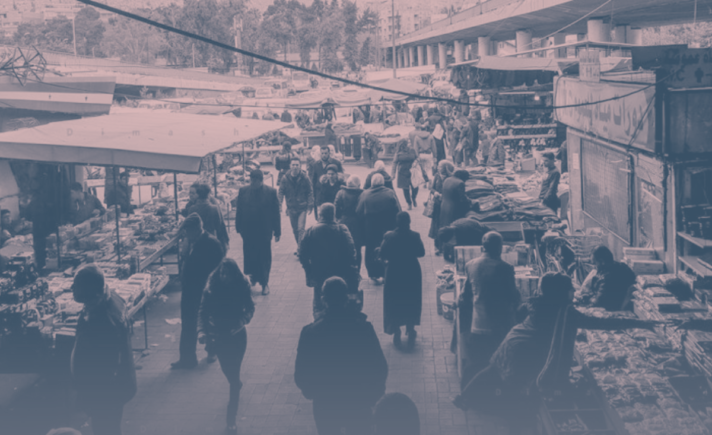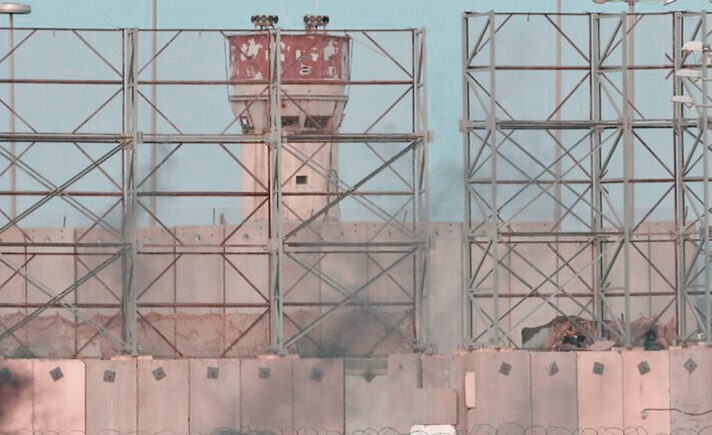There are some dates, memories and even events that are unforgettable. They may be very different from one another, but pleasurable or painful, they take up permanent residence together in our memory, never to be evicted. One of my indelible memories is the date of my arrest: January 10 2014. It was a Friday morning.
As time passes I come to understand that I am still there. What I eventually realize is that even though my body has been freed, my soul is still floating there, not having been released from captivity yet. That place – the chill of it, every last detail of it – still clogs up my dreams, sending messages that try to devise a way for my soul to get out, to scream, to express itself, to redraft the story’s plot. Maybe that way it can end differently, harmoniously, and the story can have a standard tragic ending.
It was a very harsh experience, but I felt no fear whatsoever, or even any other sensations in fact. This was perhaps due to all the accounts I had read as an adolescent of detention, torture methods, jailers and solitary confinement. Some of those readings were still clearly etched in my memory, such as Souha Bechara’s Resistance: My Life for Lebanon, and Fatima Mernissi’s The Veil and the Male Elite. I say perhaps . . .
I woke up that Friday morning and drank a glass of maté. I had just begun studying when a man I didn’t know knocked at the door. Although I looked out at him through the peephole in the door, I didn’t feel anything was amiss, and I opened the door. The man came into the apartment, immediately followed by four other people who had been hiding around the bend of the stairs. At that point I got such a shock that it lasted a full week: I was so utterly shocked that I didn’t comprehend what had happened.
They blindfolded me, took me outside and put me into a car. Then they told me not to move at all, and that I would pay the price for anything I did. I wondered to myself whether the situation would be any different if I were blind? Or whether whatever we are robbed of becomes the central focus of all our attention and what we try to retrieve, even if surreptitiously?
I went in through the door of the Criminal Security Branch. I just walked along, listening to the sounds they were all making. I stood in the corridor for quarter of an hour, then I went into a room where there were two people. They both started to hit me. I didn’t know why they were beating me, and I started to think about them: ‘This must be their way of welcoming us to make sure we’re scared from the very beginning – but I wonder what’s gonna happen next?’ They used an electric cattle prod on me, punched and kicked me, and when they’d finished with me they took me out of the room and had me stand again.
After that they took me down two floors underground and ordered a young woman to search me, but she didn’t find anything on me at all.
Even though I had been exposed to harassment from the moment I’d left home, I felt nothing. Maybe this was because what mattered to me during those moments was to be steadfast, to keep it together, to be indifferent. I didn’t feel that it was my body they were violating, I just imagined that it was all happening to my pencil case and resolved to see the whole thing as something quite normal!
I was put in a dormitory where there were more than thirty-five young women, their number increasing or decreasing according to the day, the date or the raids taking place. At one point there were forty-five of us in one small room, meaning we all had to sleep on our sides or take it in turns to lie down. I was shocked once again when they brought me to the dormitory – shocked at the sight of so many utterly empty faces, and by the horrendous smell of the toilet, which was in the room. The first thought to pierce the fog of my dumbfounded mind was a question: how can we be capable of enjoying ourselves when we know that people are in places like this, some of them staying longer and some getting out more quickly?
I was the first female ‘terrorist’ to be detained in the Criminal Security Branch. They informed me that from now on my name would be Amira Khalif, and that I must forget my original name and identity. I felt unidentified, that I was no one, just a name, a body and a void.
For seven days I stayed there slumped in the corner as if I were just a body, just listening to the sounds of torture coming from the corridor right near me. The thought occurred to me that I might be sleeping, that it was all a nightmare that would be over in the morning. But it turned out to be a very long nightmare that wasn’t over for another eleven months and eighteen days.
I was subjected to torture three times a day, each of them exactly the same: an extremely cold shower. The interrogator would say to me ‘Good morning . . . I’ve got a cold shower here, so be my guest, have a shower and have a think.’ He would turn the shower on, put me under it, and leave. I would be shaking from the extreme cold, my teeth chattering as I tried to think about nice things and tried to keep my body moving in case movement could generate even a little warmth. On one occasion I decided to fiddle with the tap: after he had turned it on and left I moved the knob, expecting the water to turn hot. But nothing happened. After a bit he came back and ordered me to turn the water off and get out of the shower. But when I turned the tap the water carried on running, so he asked me ‘Why is it still going – are you using the hot water?’ I answered him ‘To be honest the hot tap didn’t work, I didn’t get warm, look at me, I’m shivering and I’m blue.’ After that I certainly got my share of beatings. It occurred to me that I might turn into someone with a fear of showering, after I got out of detention. I began to be scared from the onset of physical torture.
The other women in the dormitory did not talk to me, as they were forbidden to. It was seven days until they took me up to the interrogator’s office for the first time. He told me that he knew everything about me, and he ordered me to make a list of my social media accounts, open my computer and give him all the passwords.
Someone from the Syrian Electronic Army was brought in, who didn’t even know how to open my account. This person was examining my Facebook account and saw a chat message to me from a user called ‘Aleppo Liberation Front’. All it contained was a single phrase, the standard greeting ‘Peace be with you’ which I hadn’t ever answered. The investigator said to me, ‘You are involved with fronts in Aleppo, and you are acting as a pair of eyes for your brother who is wanted by the Political Security Branch and who left you in Syria so you could be a spy and tell him everything.’
After an interval of the usual torture, they decided to bully me up in the air. They tied my hands together, hung me up by them and then introduced me to ‘Lakhdar Brahimi,’ who I had heard so much about and had hoped never to meet.
I didn’t feel humiliated by the torture methods I was subjected to; what hurt me were the words they used – I wasn’t used to hearing them or to saying them. I felt that I was a thing these people owned, that they were trying to abuse my body so that the pain would seep right inside me, into wherever they couldn’t gain physical entry.
It pained me that I could not defend myself, or even ask them not to speak to me like that. I wanted to shout, to express my dismay, to cry loudly and shamelessly, to grab his hand and tell him not to come any closer, or that I didn’t want to see him today or tomorrow, or that I wanted to go out and see the sky and smoke a cigarette and sit down for five minutes without hearing any sounds or voices.
The endless hours of interrogation exhausted me, and those moments when the door of the dormitory would open so the next victim could be chosen, and the voices of those being tortured, and the time I spent standing in the torture corridor. They would make me stand there for hours, blindfolded, to listen to the sounds of the others being tortured, and order me to think. How was I supposed to think when someone was in pain, screaming, confessing, and pleading?
After a month and a week had passed they put me on the ‘flying carpet’, the most painful torture method of all. After they had finished they forced me to walk on my feet, and put Epsom salts on them so they wouldn’t swell, or perhaps so that they could torture me again in the same way, but I feigned being entirely unable to walk for a whole week so as not to have a second experience of that method.
One of the stories that I remember well was of a woman from Hama who lived with her husband and her two children in Lebanon. She decided to visit her family with her children, and she told me that she was seized at the border because of a deliberately deceitful statement made by one of her relatives. She knew nothing of what had happened to her two children; she used to cry a lot, and stop when she got hold of a cigarette.
Another woman used to live in Jaramana, and was accused of stealing cars – even though she couldn’t drive. She used to lend me her clothes after every cold shower I was subjected to.
After a while the interrogator came and suddenly called my name and ordered them to take me out of the dormitory. I felt my feet start to shake – I was expecting him to put me on the ‘flying carpet’ again – but he was smiling expressionlessly. All the girls in the dormitory used to describe him as attractive. I would say to them:
‘I see him as utterly ugly. Is it not enough that he shares our torture, our pain and our screams? Is it not enough that he is inhuman? Doesn’t that make you hate him? Doesn’t the sound of someone screaming and begging him to stop hitting them or for a sip of water have any effect on you?’
When the interrogator spotted me he came over to me, put his hand on my shoulder, and said:
‘There you are, Amira. I’m here to give you a demonstration, and before coming here I went to see Hazim and Shiyar. We decided to film some footage for television which will get you all out of here and move you to Adra prison, and after that you can please yourself and hopefully go to hell. If you don’t agree to do it I promise you I will leave you to rot here and no one will know anything about you, and you’ll die here like dogs. What do you say? You want to get out of here or not? Look, you’ve got from now until I call for you, and if you say yes we’ll begin tomorrow morning.’
Sometimes the difficulty of the situation and the strong emotions that the memory conjures up mean one cannot describe a state or a feeling. This may be because the emotion provoked is not recognised by our memory, and it is therefore not able to name it. It may also be because this new emotion brings together elements of all previous emotions stored in the memory and fuses them, making it impossible to name the feeling or to describe the type of situation at all.
On March 15 2015 we made a video about media fabrication to be shown on the television programme ‘The Watchful Eye’, so that our torture would stop and we could wait to get moved to Adra prison. I had a sense of great loss that day. I wanted to say, ‘Leave me be, I don’t want to talk and I don’t want to get out.’ But I did want to get out of there, and I paid the price.
I spent a long night, the time passing at a snail’s pace, giving me enough time to think about everything I wanted to and everything I didn’t want to, too – my life, my memories, my lover, my family, my friends, all the details. I tried to build myself some hope that could sit there with me in the corner and make me less lonely: the hope that I would not lose or waste what I fight for and live for, and not resemble them, and get out of that darkness.
‘They can force you to say whatever they want, but they can’t force you to believe in what you say, because they have no executive power over your inner being.’
There was no specific term I might serve in prison and then be released: I had been presented to a judge only once, before my detention. The most beautiful thing about hope, and the worst thing about it, at the same time, is that we can build it out of nothing. Even when we feel forsaken and lost, there is always a tiny crack the light shines through.
Ever since my arrest, right up to the time of writing, I feel like a moon drifting from place to place, belonging neither here nor there. I have no memory of the past: my current memory is very immediate. I don’t know everything, but what I do know is that I am still trying to retrieve what was left of me in that place.
Life in that place taught me to give for free, and not wait for anything in exchange for what I give. It taught me to show solidarity in listening, and to accept others. I tried to find God but he didn’t find me; I tried to find something to help me but all I found was myself. I learnt to think positively, and to deal with long slow time.
I’m still trying to come back from there, because I’m here and I don’t want to stay there. I want there when I want, and I want here where I want. I don’t want to be there because I’m there, nor here because I’m here.
I want to be where I want to be, no more and no less.
What do I want to say about the amount of darkness I saw in there? What about the faces that cried for help over and over with no response, and the echo of the voices pleading their innocence – ‘Leave me alone . . . I didn’t do anything to deserve this punishment! Why are you hitting me? Why are you humiliating me? For God’s sake, stop it, please! I kiss your hands, I kiss your legs, I’m begging you! I’ve got children and a family, they’ve only got me to take care of them! For God’s sake stop it stop it, I can’t take any more!’ – what do I want to say about them? What do I want to say about all the cruelty, oppression and inhumanity? I want to say this: I was and I am still with revolution, but the feelings inside me have become more intense. It is impossible for us to accept a regime like this and a bloodthirsty serial killer of a president who violates human rights. I want Syria to be liberated, and for there to be an end to the suffering brought by barrel bombing and depraved Russian planes. I want the people of Syria to be freed from the fear and anxiety that every bomb brings, and for their children to dream ordinary dreams with no rockets in them, no machine guns, and no blood – dreams as tranquil as their peaceful sleep.
I know that everything has its price. We will get our freedom, even if it takes a while.




